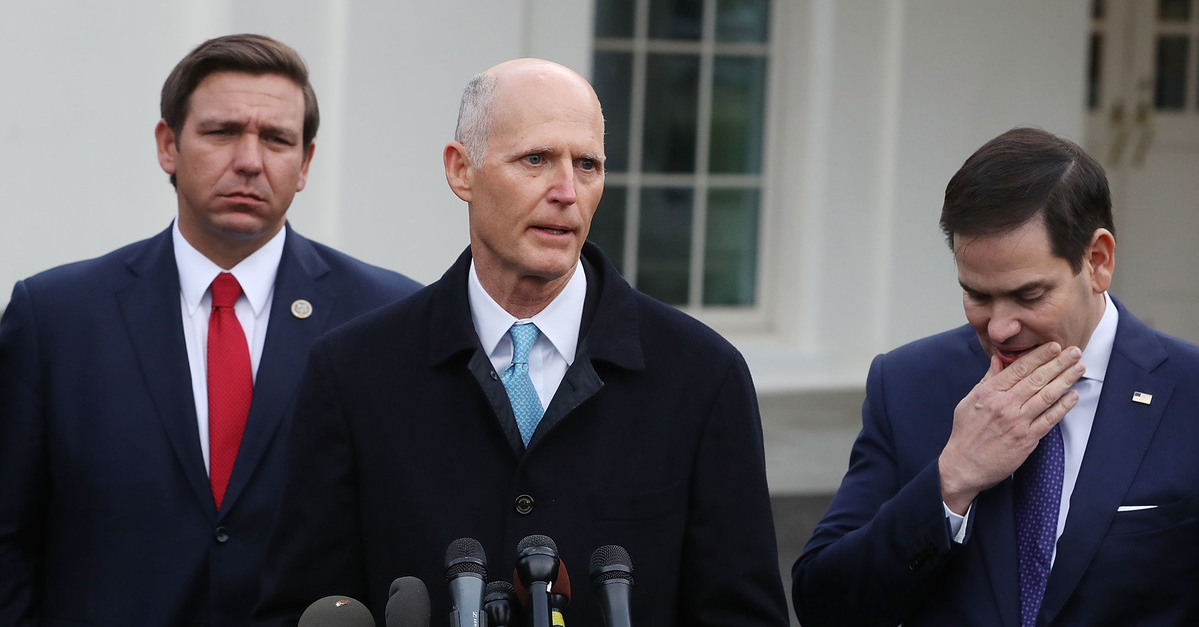
A federal court in Florida has ruled that it is unconstitutional to deny individuals with prior felony convictions the right to vote based on their inability to pay fees and fines. Friday’s decision restores the right to vote for plaintiffs who otherwise would be eligible to vote in Florida but who simply cannot afford to pay off their outstanding fines, fees and restitution.
The 55-page opinion by U.S. District Judge Robert Hinkle is a victory for voting rights advocates and Civil Rights advocates who argued that Florida Republicans had essentially re-instituted a poll tax on the right to vote in the Sunshine State.
The mood among pro-democracy advocates was jubilant just after the 2018 midterm elections when Florida’s electorate overwhelmingly chose to allow formerly incarcerated individuals their right to vote. Some 65 percent of Floridians voted in favor of re-extending the franchise. The passage of Amendment 4 would have allowed 1.5 million previously disenfranchised Floridians the right to vote.
In sum, the popular measure affected roughly seven percent of Florida’s entire population–but disproportionately impacted the state’s African-American community for the better. Under the prior, 150-year-old system of disenfranchisement, nearly 20 percent of Florida’s black population was denied the right to vote.
Republicans, however, quickly set to work undermining the new law.
First, they publicly dragged their feet and simply refused to implement the Voting Restoration Amendment absent implementation guidance from the state legislature. So, the GOP-dominated body got to work and passed SB 7066, a law which essentially thwarted the will of Florida’s voters by preconditioning the restoration of voting rights on the ability of formerly incarcerated individuals to pay–sometimes massive–fines, fees and restitution.
The upshot of the anti-voting rights law was not lost on advocates.
“This law will disproportionately impact black Floridians with a felony conviction, who face the intersecting barriers of accessing jobs in a state with long-standing wealth and employment disparities,” NAACP Legal Defense and Educational Fund litigation deputy director Leah Aden said. “Because the Florida Legislature ignored these well-understood realities, SB 7066 must be stopped.”
Several plaintiffs quickly filed suit against the new law–including the Florida branch of the NAACP–arguing that SB 7066 was unconstitutional for various reasons.
Judge Hinkle agreed with the plaintiffs.
From the order [emphasis in original]:
[T]he State of Florida cannot deny restoration of a felon’s right to vote solely because the felon does not have the financial resources necessary to pay restitution. And because, for this purpose,there is no reason to treat restitution differently from other financial obligations included in a sentence, Florida also cannot deny restoration of a felon’s right to vote solely because the felon does not have the financial resources to pay the other financial obligations. [Another] court summed it up succinctly: “Access to the franchise cannot be made to depend on an individual’s financial resources.”
“Suppose a state adopted a statute automatically restoring the right to vote for felons with a net worth of $100,000 or more but not for other felons,” Hinkle asked hypothetically. “Would anyone contend this was constitutional? One hopes not. An official who adopts a constitutional theory that would approve such a statute needs a new constitutional theory.”
[image via Mark Wilson/Getty Images]